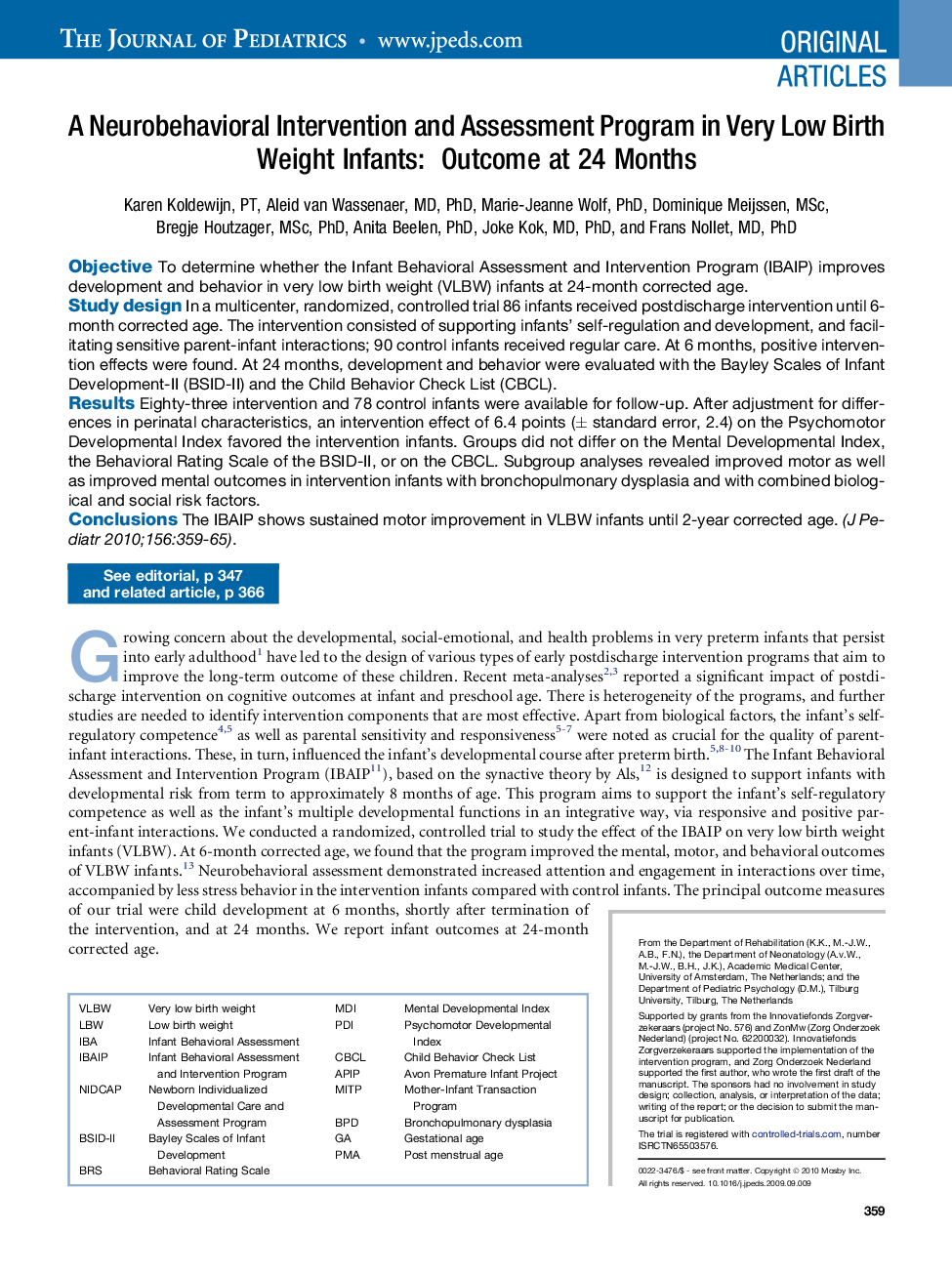| Article ID | Journal | Published Year | Pages | File Type |
|---|---|---|---|---|
| 4165675 | The Journal of Pediatrics | 2010 | 7 Pages |
ObjectiveTo determine whether the Infant Behavioral Assessment and Intervention Program (IBAIP) improves development and behavior in very low birth weight (VLBW) infants at 24-month corrected age.Study designIn a multicenter, randomized, controlled trial 86 infants received postdischarge intervention until 6-month corrected age. The intervention consisted of supporting infants' self-regulation and development, and facilitating sensitive parent-infant interactions; 90 control infants received regular care. At 6 months, positive intervention effects were found. At 24 months, development and behavior were evaluated with the Bayley Scales of Infant Development-II (BSID-II) and the Child Behavior Check List (CBCL).ResultsEighty-three intervention and 78 control infants were available for follow-up. After adjustment for differences in perinatal characteristics, an intervention effect of 6.4 points (± standard error, 2.4) on the Psychomotor Developmental Index favored the intervention infants. Groups did not differ on the Mental Developmental Index, the Behavioral Rating Scale of the BSID-II, or on the CBCL. Subgroup analyses revealed improved motor as well as improved mental outcomes in intervention infants with bronchopulmonary dysplasia and with combined biological and social risk factors.ConclusionsThe IBAIP shows sustained motor improvement in VLBW infants until 2-year corrected age.
